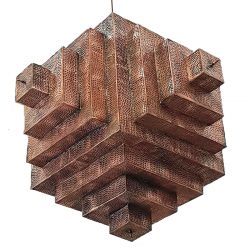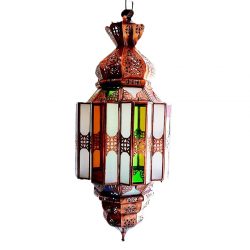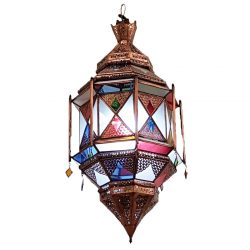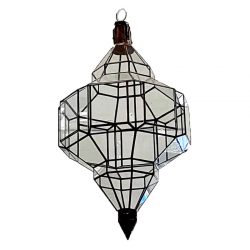Description
Bozo Puppet Fish
Along the Niger and Bani rivers in the region of Segou, the former capital of the Bamana kingdom, performances with brightly painted and costumed puppets are staged by the village youth association.
Although today Bamana farmers and Bozo fishermen participate together in these performances, oral tradition holds that the puppet theater originated among the Bozo, descendants of the Soninke rulers of the medieval Ghana Empire and perhaps the original inhabitants of the area.
For the puppet performances, a small mobile stage is covered with cloths or grasses concealing the men inside, who move the stage across the dance area.
Fitted in front with a wooden animal head with articulated jaws, the stage is itself a large puppet. In addition, small carved heads or figures with movable limbs poke out from the top and are made to twirl and dance.
Sometimes men wearing face or helmet masks perform alongside the puppets.
The puppets and masks depict animals, fantastic creatures, and characters from village life-the farmer, the soldier, the mother, and so forth.
Through the movements of the puppets and the songs that accompany them, the youth association is able to comment on the social and political life of the community.
The Bozo are a West African ethnic group
located predominantly along the Niger River in Mali.
The name Bozo is thought to derive from Bambara bo-so “straw house”; the people accept it as referring to the whole of the ethnic group but use more specific clan names such as Sorogoye, Hain, and Tieye themselves.
They are famous for their fishing and are occasionally referred to as the “masters of the river”.
The Bozo language, which belongs to the Soninke-Bozo subgroup of Northwestern Mande, have traditionally been considered dialects of one language though there are at least four distinct varieties.
Aspects of Bozo culture took shape under the 10th century Ghana Empire, when the Bozo took possession of the banks of the Niger. The Bozo were the founders of the Malian cities of Djenné and Mopti.
Though the Bozo are predominantly Muslim, they preserve a number of animist traditions as well.
Their animal totem is the bull, whose body represents the Niger and whose horns represent the Bozo fishing pirogues.




